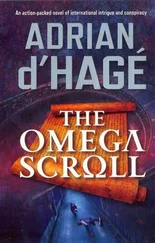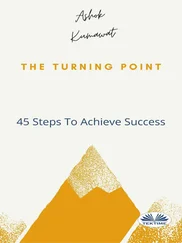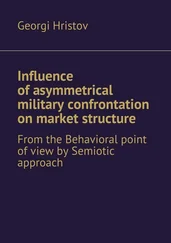I suppose that leaves me more or less out on a limb—or, more properly, a plank. Without science or religion, I certainly have no established allies. Maybe secret societies could take up my cause, but so far, no cigar.
It’s quite fun on my plank. Out here, if you jump you may just fly. Out here, we are a delicious mystery that goes far beyond the intricacies of physical life, but is also divorced from the guilty weight of conventional religion.
I do not think that we live in the highest civilization ever known, and I think that the modern intellectual enterprise has failed in two fundamental ways. It has been unable, or unwilling, to look at the past objectively, and it has been unable to devise any means to detect the existence of the soul as a part of the physical universe—a measurement that, I think, must be possible. If I am correct, it must also be the foundation of a much truer science than we now know.
I think that the modern failure to realize that energy can itself be conscious is as fundamental to our progress as was the failure of the ancient world to understand the potential of steam power.
Around A.D. 120, Heron of Alexandria invented a device called the aeolipile, a simple steam engine, which was used to open the doors of a temple, and also showed up in Roman playrooms as a toy. The potential of the technology was never understood by the Roman world. Without any ability to see the soul, and penetrate into its reality with technology, modern science is at least as far from understanding the truth about human life as the Romans were from understanding steam power.
If the experience gained from lives like mine is at all true, then we have two forms, one that is active and embedded in the physical body, and another that is contemplative and lives on when the body dies, in an energetic state. I believe that consciousness cycles back and forth between the two, but both are essentially part of physical reality. The soul is not in any way outside of nature, but human death is a transformation into another form, in the same way that a caterpillar becomes a butterfly.
To me, the physical world is far richer than would be suggested by a mechanistic model of reality. I do not believe that religious traditions such as that of resurrection, which emerges in earliest times in the form of the story of Osiris, and continues to the promise of Christ, involve the supernatural at all. They are about living in the physical world in a way that leads to the preservation of individuality when the body dies and consciousness enters the energetic state.
From Osiris to Christ, I wonder if the resurrection stories might not reflect an ancient science of the soul that was lost as our increasing focus on the material world caused us to become soul-blind and thus god-blind and therefore also blind to the most vividly alive aspect of our own being?
As a result of this change in focus, we no longer live to die, we live to live. On the surface, this seems nicer, of course. But that’s only on the surface. In that it assumes that death has no meaning, it also assumes that life has no meaning.
I think that it has led to a situation where most of us are completely unprepared for death. So we enter the other world in confusion, clinging to the residue of our physical lives. It has also led us to our fantastic obsession with material existence, and our addictive habits of consumption.
It’s interesting to contemplate just how awkward it must be for some people when they arrive on the other side. Christians who find no Saint Peter, or Muslims who are not greeted by dancing virgins—except, perhaps, for the women. Or people like Jean-Paul Sartre or, say, Nietzsche, whose embarrassment must have been quite fantastic. The truth, I suspect, is that on dying we enter another kind of life, but it is, also, ordinary life. Chiefly, it offers an immeasurably detailed reconstruction of our physical experience that can enable us to rise above the whole process altogether and, seeing ourselves with true objectivity, ascend into unimagined realms.
This is what is happening in The Omega Point, to the vast numbers of people who are ascending into the enigmatic higher reality. David Ford never quite understands what is happening to them, or why it doesn’t happen to him, so he soldiers on in his elegantly unsure way, trying to find the sense of his own very different mission.
Certain parts of the Bible, and traditions such as the ancient Egyptian religion, suggest that there may once have been more objective understanding of this other reality, and that it may have been addressed with the lost science of the soul. Among the relevant documents in the Bible, the Gospels are a chronicle of how to live to die in a state of compassion and forgiveness that enables us to let go of the concerns of physical life and ascend, rather than cling to them and end up eventually returning to this state—a fate which cannot possibly be considered as other than a pretty mawkish outcome, once one has become aware of the greater potential that one might have realized.
This is why, in The Omega Point, Christ is seen as a scientist. I think that’s exactly what he was, and his miracles reflect not supernatural powers but scientific knowledge of the way the energetic world actually works, and an ability to apply its principles to physical reality, thus effecting cure and defying death.
Developing this assertion, it would therefore be probable that he learned his techniques during the time he spent in Egypt, and that he was specifically chosen because of his Davidic heritage, by practitioners who understood that their own world was coming to an end, and were seeking to bequeath their knowledge to the future. When the Romans tacked that sign on his cross, KING OF THE JEWS, they weren’t just being sardonic but also stating a fact: he was the heir to the House of David and thus the mortal enemy of Rome’s client-king Herod.
If this knowledge still existed in Jesus’ time, it must have already been quite isolated from the central and public stream of Egyptian culture. For example, what we know of Egyptian religion suggests, in its elaborate use of magical implements and ritual, that it was enacting something that had lost its true meaning, somewhat like what happens when children who have observed an adult drive a car play at doing the same thing.
As a child I did this—unfortunately, though, with a real car. I was no more effective at driving down the street at the age of ten than the Egyptians were, I suspect, at engaging conscious energy with their rituals.
During World War II, natives in the mountains of New Guinea were exposed to Western technology for the first time when the U.S. Air Force began building bases in the area. When they saw planes landing and disgorging an unimaginable cornucopia of supplies, they responded by using sympathetic magic. They cleared jungle air strips. They built airplanes out of bamboo and leaves, and wove objects that looked to them like the refrigerators the airmen had. Then they devised ritual movements and sounds that to them mimicked the movements of the U.S. personnel back and forth between the airplanes and the refrigerators.
But when they opened the doors to their “refrigerators,” no beer came out, and I speculate that this could be what was happening when Egyptians concluded their rituals, which mimicked the operations of a much older lost science, but were no more functional than bamboo airplanes.
All was not lost, though, not entirely. Here and there, some traditions had retained at least some of that knowledge, and later in the discussion we will speculate about who and where.
Nevertheless, for the most part, the science that once gave these rituals potency had been lost, I believe, in a phenomenal upheaval that swamped the world thousands of years before Egyptian civilization even appeared.
Читать дальше











